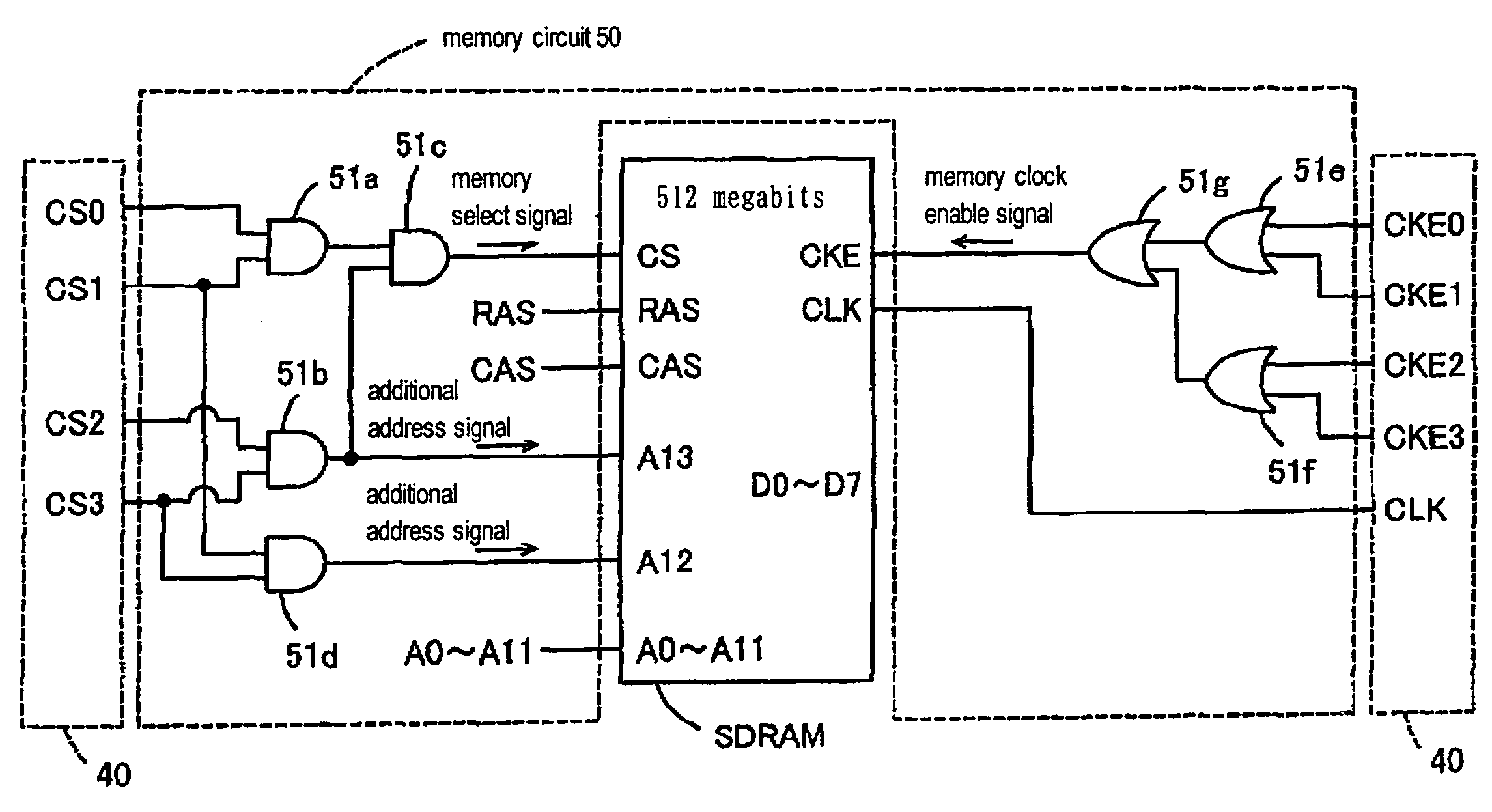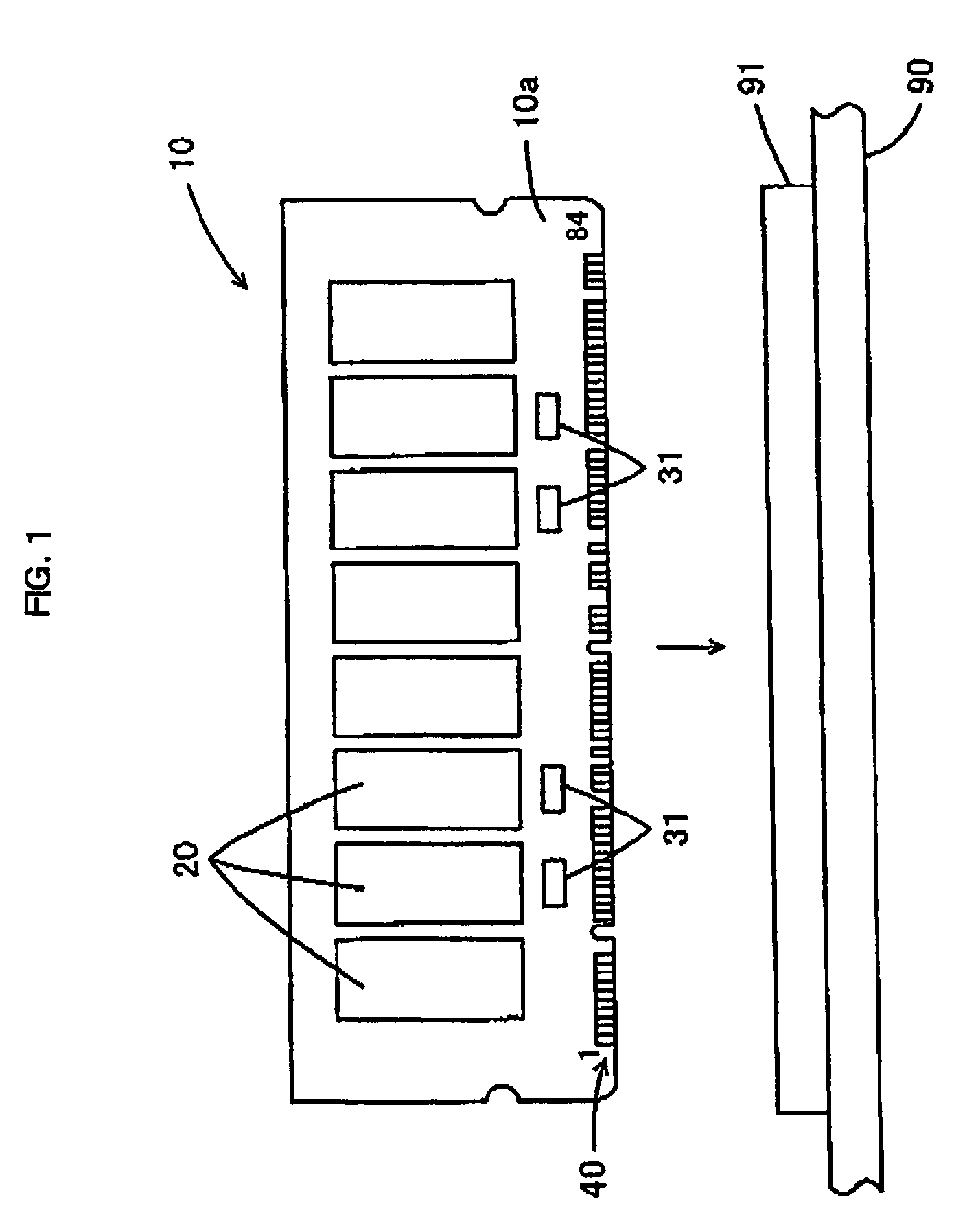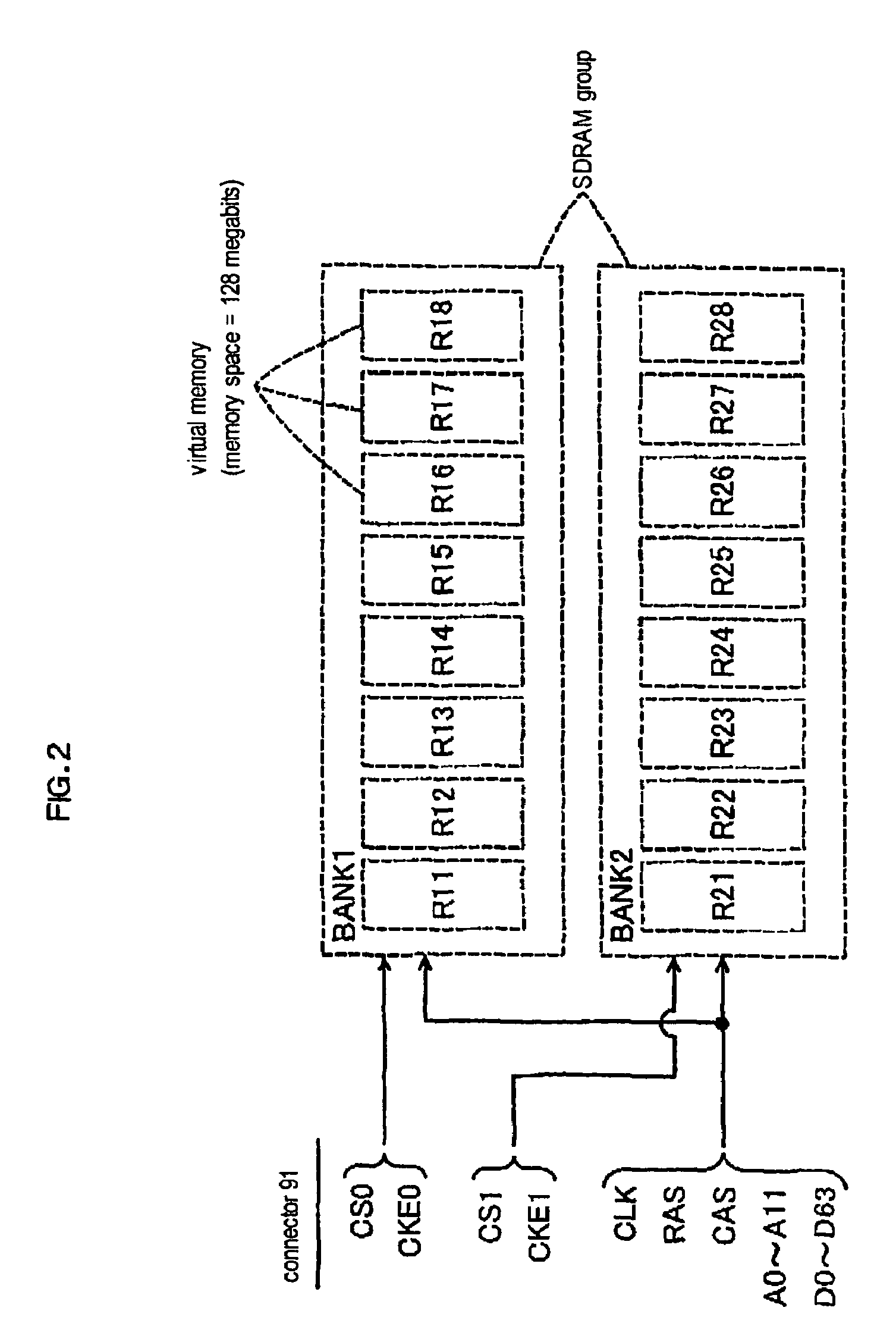Memory module and memory-assist module
a memory module and memory-assist technology, applied in the field of memory modules and memory-assist modules, to achieve the effect of effective us
- Summary
- Abstract
- Description
- Claims
- Application Information
AI Technical Summary
Benefits of technology
Problems solved by technology
Method used
Image
Examples
Embodiment Construction
[0054]Embodiments of the present invention is explained in the following order.
[0055](1) Structure of a memory module
[0056](2) Effect of the memory module
[0057](3) Alternatives
[0058](1) Structure of a Memory Module
[0059]FIG. 1 is a front view showing an appearance of a memory module 10 of an embodiment of the present invention. The positional relationship of up, down, left, and right is explained according to FIG. 1.
[0060]Eight 256-megabit SDRAMs 20, a plurality of gate ICs 31, a resistor circuit (not shown), and the like are mounted on a print board 10a of the memory module 10. The print board 10a has a standardized shape. A 168-pin DIMM terminal 40 is formed on the bottom edge of the print board 10a. Each of front and back surfaces of the bottom edge has 84 pins. The memory module 10 is an expansion memory card for desktop type personal computers (PCs), and can be inserted to a connector (slot) 91 of a mother board 90 of a desktop type PC (computer body). Corresponding to location...
PUM
 Login to View More
Login to View More Abstract
Description
Claims
Application Information
 Login to View More
Login to View More - R&D
- Intellectual Property
- Life Sciences
- Materials
- Tech Scout
- Unparalleled Data Quality
- Higher Quality Content
- 60% Fewer Hallucinations
Browse by: Latest US Patents, China's latest patents, Technical Efficacy Thesaurus, Application Domain, Technology Topic, Popular Technical Reports.
© 2025 PatSnap. All rights reserved.Legal|Privacy policy|Modern Slavery Act Transparency Statement|Sitemap|About US| Contact US: help@patsnap.com



